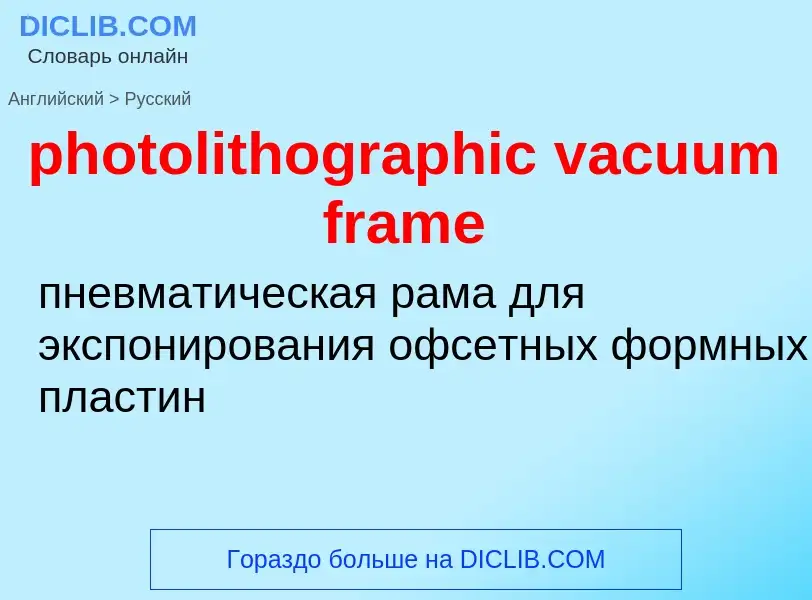Μετάφραση και ανάλυση λέξεων από την τεχνητή νοημοσύνη ChatGPT
Σε αυτήν τη σελίδα μπορείτε να λάβετε μια λεπτομερή ανάλυση μιας λέξης ή μιας φράσης, η οποία δημιουργήθηκε χρησιμοποιώντας το ChatGPT, την καλύτερη τεχνολογία τεχνητής νοημοσύνης μέχρι σήμερα:
- πώς χρησιμοποιείται η λέξη
- συχνότητα χρήσης
- χρησιμοποιείται πιο συχνά στον προφορικό ή γραπτό λόγο
- επιλογές μετάφρασης λέξεων
- παραδείγματα χρήσης (πολλές φράσεις με μετάφραση)
- ετυμολογία
photolithographic vacuum frame - translation to ρωσικά
['vækju(ə)mkli:niŋ]
общая лексика
чистка пылесосом
Ορισμός
Βικιπαίδεια
In quantum field theory, a false vacuum is a hypothetical vacuum that is relatively stable, but not in the most stable state possible. This condition is known as metastable. It may last for a very long time in that state, but could eventually decay to the more stable state, an event known as false vacuum decay. The most common suggestion of how such a decay might happen in our universe is called bubble nucleation – if a small region of the universe by chance reached a more stable vacuum, this "bubble" (also called "bounce") would spread.
A false vacuum exists at a local minimum of energy and is therefore not completely stable, in contrast to a true vacuum, which exists at a global minimum and is stable.




![The power unit of a typical [[central vacuum cleaner]] for residential use The power unit of a typical [[central vacuum cleaner]] for residential use](https://commons.wikimedia.org/wiki/Special:FilePath/Drainvac central vacuum with air inlet.jpg?width=200)




![Astronaut [[Tracy Caldwell Dyson]] vacuums equipment on the [[International Space Station]] Astronaut [[Tracy Caldwell Dyson]] vacuums equipment on the [[International Space Station]]](https://commons.wikimedia.org/wiki/Special:FilePath/ISS-24 Tracy Caldwell Dyson during housekeeping.jpg?width=200)
![Kirby]] G5 vacuum cleaner Kirby]] G5 vacuum cleaner](https://commons.wikimedia.org/wiki/Special:FilePath/Kirby G5 upright vacuum cleaner - 20140913.jpg?width=200)


![Housemaid]] using "dedusting pump", {{Circa}} 1906. Housemaid]] using "dedusting pump", {{Circa}} 1906.](https://commons.wikimedia.org/wiki/Special:FilePath/Vacuum Cleaner 1906.jpg?width=200)






